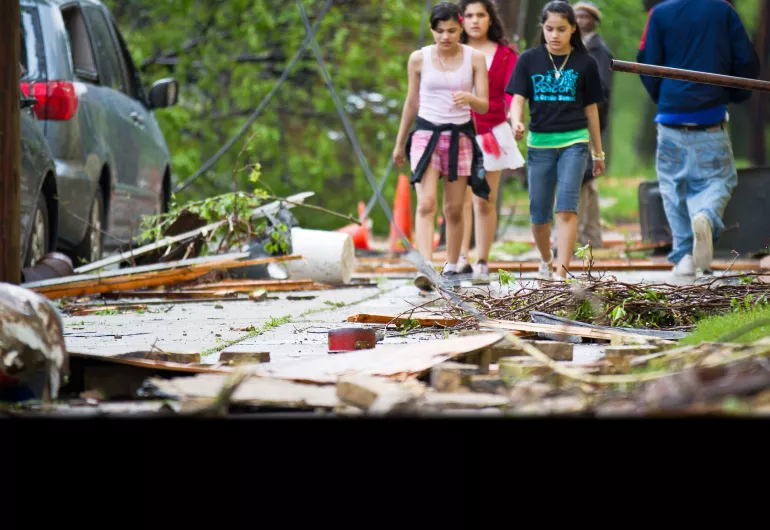Northrop, Institute for Advanced Study and University Honors Program Present
Grasping at the Roots: Intersectionality and Environmental Justice
Spotlight Series 2019-20
Past event
Sep 19, 2019

“Environmental justice” and “intersectionality” arguably have been two of the most popular buzzwords in social science research in recent years. Both concepts are rooted in radical Black traditions, environmental justice in anti-racist community organizing in the U.S.’s South, and intersectionality in Black feminist legal scholarship. Both concepts have traveled significantly from their original respective homes and have been used to examine issues ranging from fatphobia to climate change. In this discussion, Fayola Jacobs of the Humphrey School of Public Affairs traces the theoretical, methodological, geographical, and topical journeys of environmental justice and intersectionality. With a focus on how the two concepts have been taken up in research on flood-related disasters and climate change, Jacobs lays out what has been lost and what has been gained on these travels. She argues that current literature’s use of the two concepts is largely superficial, which betrays their critical origins, limits their power for historically rooted understandings of environmental issues, and undermines their ability to help imagine radical solutions.